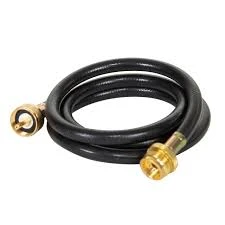335345435
Nov . 07, 2024 17:00 Back to list
Durable Hoses for Fuel and Gasoline Applications
Understanding Gasoline Resistant Hoses Importance, Applications, and Selection
In the modern era, the efficient transport and transfer of various fluids is vital for numerous industries, particularly in automotive, aerospace, and manufacturing sectors. One essential component facilitating this process is the gasoline resistant hose. These hoses are specifically designed to handle the challenges posed by gasoline and other petroleum-based fuels, ensuring safe and effective transfer without compromising on performance or safety.
What is a Gasoline Resistant Hose?
A gasoline resistant hose is a flexible conduit made from materials that can withstand the corrosive nature of gasoline. Unlike standard hoses, which may degrade or become brittle upon exposure to such hydrocarbons, gasoline resistant hoses utilize specialized materials capable of maintaining their integrity under varied temperatures and chemical conditions.
These hoses often consist of multi-layered structures, combining materials such as rubber compounds, synthetic polymers, and reinforcing fibers. This combination provides not only resistance to fuel but also physical strength against pressures and abrasions.
Why is Resistance Important?
Resistance to gasoline is crucial due to the chemical properties of fuel. Gasoline contains a range of hydrocarbons, including aromatics that can cause conventional materials to degrade over time. A hose that fails under fuel pressure could lead to significant safety hazards, including leaks, fires, and environmental damage.
For industries dealing with gasoline, the implementation of gasoline resistant hoses goes beyond mere compliance with safety standards; it is a fundamental aspect of operational efficiency. A durable hose ensures that fuel delivery systems run smoothly, thereby minimizing the downtime and economic loss associated with replacements and repairs.
Applications of Gasoline Resistant Hoses
Gasoline resistant hoses play a pivotal role across numerous applications
1. Automotive Fuel Systems They are critical in internal combustion engines, as they are used to transport fuel from the tank to the engine. Ensuring these hoses are of high quality prevents issues related to fuel vapor escape and leaks that could result in fire hazards.
gasoline resistant hose

2. Fuel Dispensing In commercial and retail fuel stations, gasoline resistant hoses are employed at the pumps to deliver fuel to vehicles safely. These hoses need to be not only resistant to the fuel itself but also durable enough to withstand repetitive use.
3. Marine Applications Boats and ships often use gasoline resistant hoses for fuel transfer because of their exposure to various environmental factors such as saltwater, which can exacerbate wear and tear.
4. Mechanical Equipment Many industrial machines use gasoline as a power source; therefore, gasoline resistant hoses facilitate the safe transfer of fuel in machinery ranging from generators to lawn mowers.
Selecting the Right Hose
When choosing a gasoline resistant hose, several factors need to be considered
1. Material Compatibility Different fuel types may require hoses made from specific materials. For instance, hoses designed for fuel with high ethanol content (like E85) might require different construction than those for regular gasoline.
2. Temperature Ratings The operating environment plays a significant role. It is crucial to select hoses that can operate effectively within the temperature ranges specific to the application.
3. Diameter and Length Hoses come in various diameters and lengths. Selecting the correct size ensures optimal flow and prevents pressure loss.
4. Reinforcement Depending on the application, the hose may need additional reinforcement to handle higher pressures or to resist physical abrasions, especially in dynamic or rough environments.
Conclusion
In conclusion, gasoline resistant hoses are indispensable components across various industries, ensuring the safe and efficient transfer of fuel. Their specialized design mitigates risks associated with fuel degradation and mechanical breakdown, enhancing operational reliability. By understanding the importance, applications, and selection criteria for these hoses, professionals can make informed decisions that align with safety standards and operational needs, ultimately contributing to a safer and more efficient industrial environment. As the demand for safe fuel transport continues to grow, investing in high-quality gasoline resistant hoses will remain a priority in ensuring the integrity and security of fuel systems.
-
Twin Hydraulic Hose | High Pressure & Durable
NewsJul.21,2025
-
Discount Hydraulic Hose Factories | Top Quality & Discounts
NewsJul.20,2025
-
EN856 4SP Hydraulic Hose - High Pressure & Durable
NewsJul.20,2025
-
SAE 100 R17 Black Smooth Cover Hydraulic Hose
NewsMar.07,2025
-
SAE 100 R17 Black Smooth Cover Hydraulic Hose
NewsMar.07,2025
-
SAE 100 R17 Black Smooth Cover Hydraulic Hose
NewsMar.07,2025



